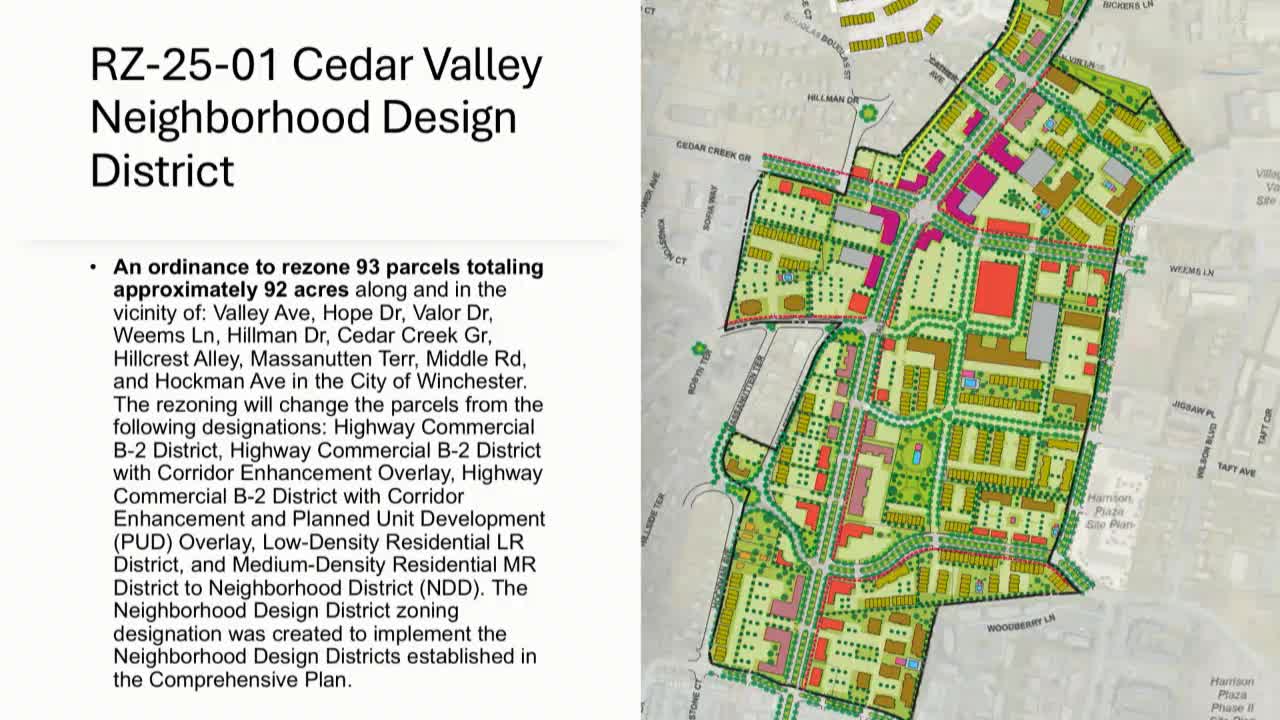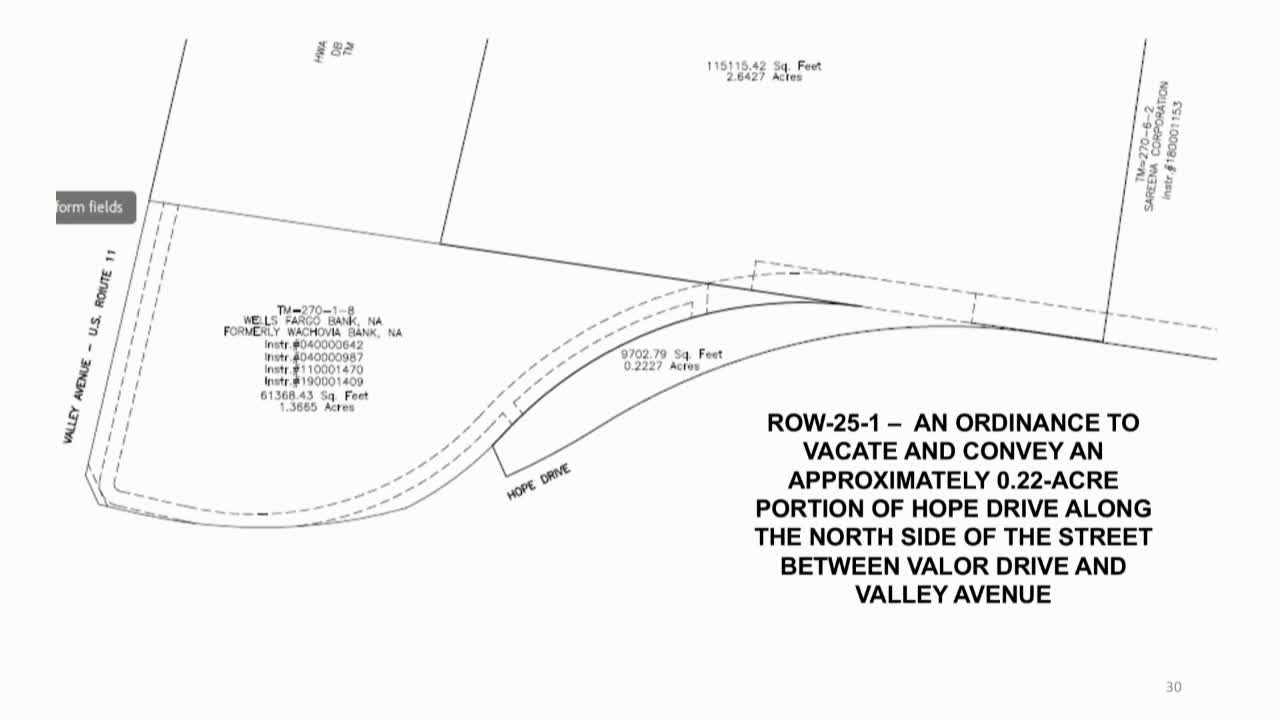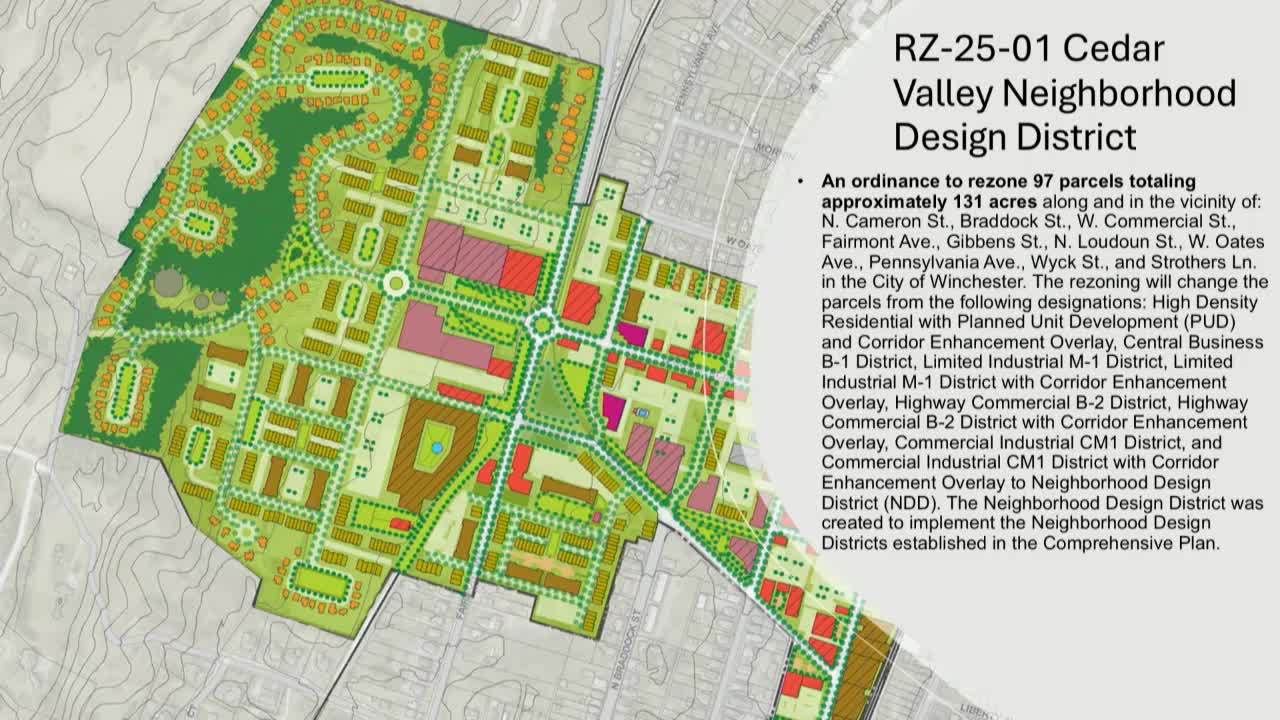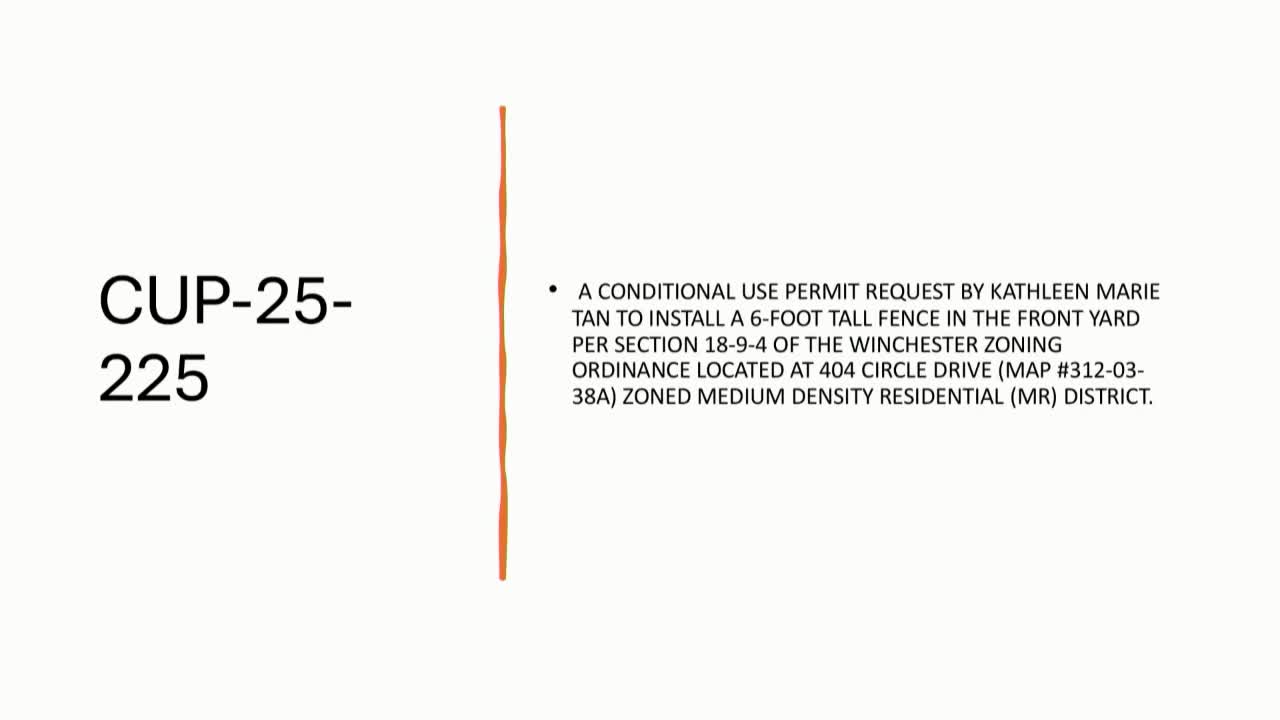Article not found
This article is no longer available. But don't worry—we've gathered other articles that discuss the same topic.

Commission reviews city-sponsored rezoning to create Cedar Valley Neighborhood Design District

Commission discusses two right-of-way vacation requests: Whitlock alley remnant and Hope Drive sliver

Planning staff outlines Seider Hill Neighborhood Design District rezoning; commission signals support

